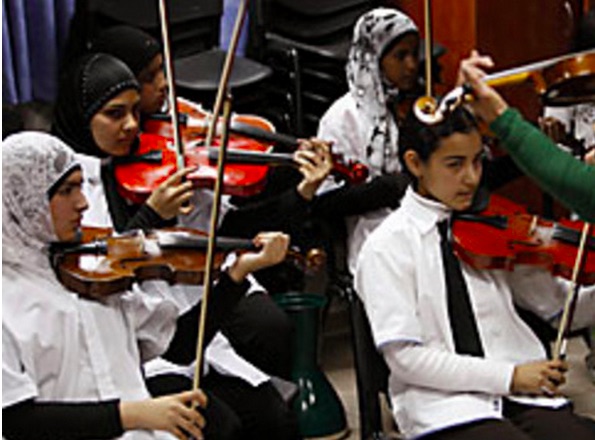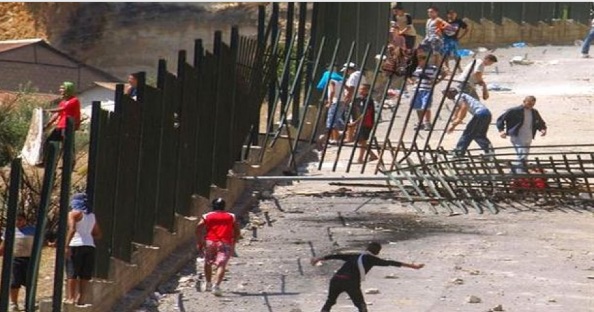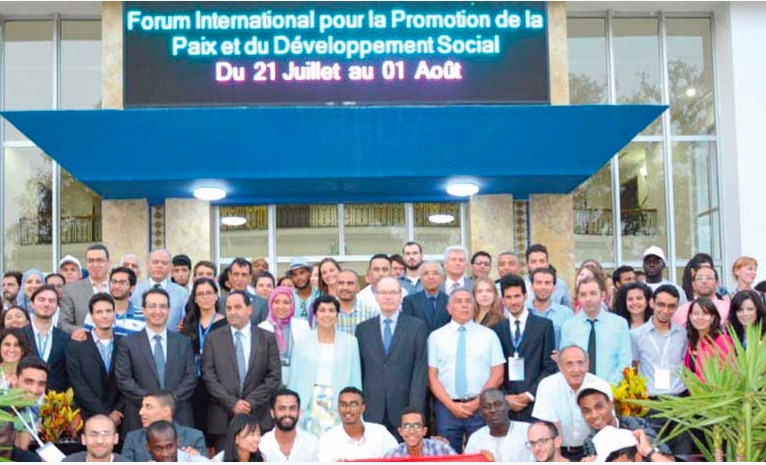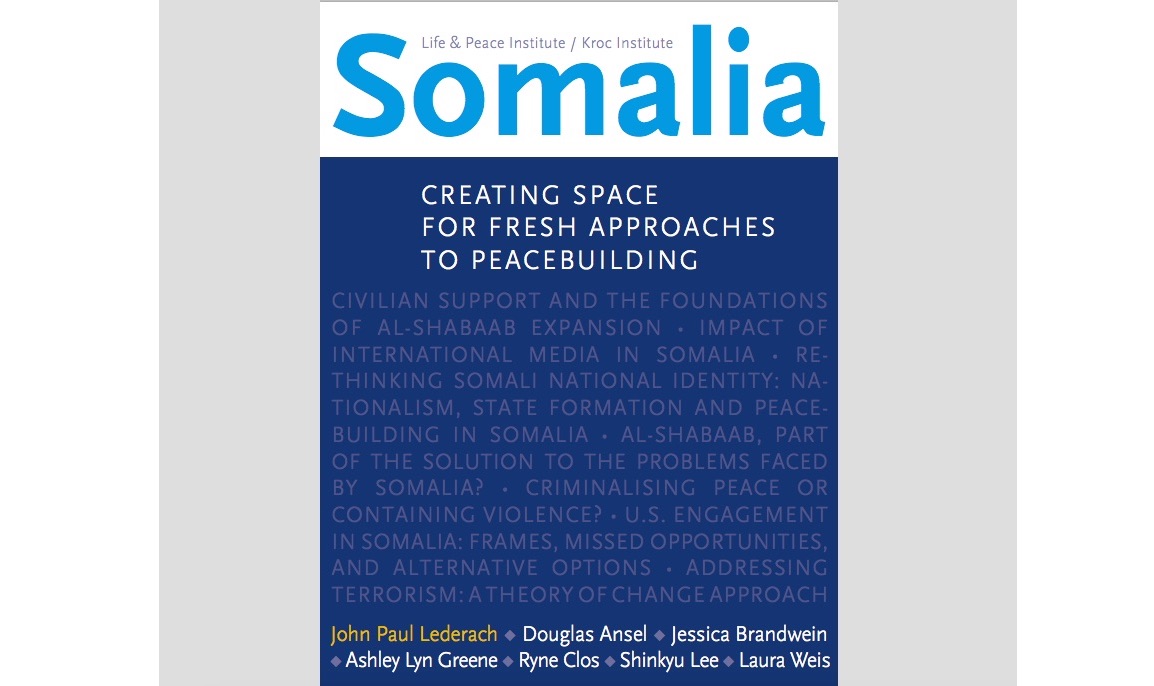TOLERANCE AND SOLIDARITY .
An article from Peace Is Sexy
There is a widespread perception that youth are trouble makers. Economists believe a large youth population to be problematic for a country. Police forces (notably in the US) distrust youth and often target youth. Youth are considered to be particularly susceptible to violent extremism. And even governments consider youth as too young and inexperienced to have any kind of value added in political participation.
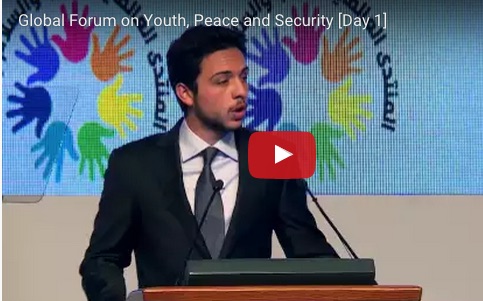
video of Global Forum
But there is a movement that is gaining traction to cast youth not as trouble makers, but as peace makers. And there is evidence to back it up. According to the 2015 Global Peace Index, “Poverty and youth bulges are typically considered risk factors for urban violence. However these factors were found not to be statistically significant in this study.”
Indeed, the Global Forum on Youth, Peace and Security which occurred on August 21 and 22 in Amman, Jordan was a watershed moment for shining light on how youth contribute to peace. The forum comes on the heels of Jordanian Crown Prince al Hussein bin Abdullah II, at the age of 20, being the youngest person to chair a UN Security Council meeting. Appropriately, the April 2015 session focused on discussing youth participation in peacebuilding and countering violent extremism.
The high point of the Global Forum was the adoption of the Amman Declaration which begins with the following:
We, young people from around the world, gathered here in Amman, Jordan on 21-22 August 2015 at the Global Forum on Youth, Peace and Security, express our commitment to live in a peaceful global society. Today, with more young people than ever globally, it is a demographic imperative to include us in working to achieve stability and security. […]
With this Declaration, we present a common vision and roadmap towards a strengthened policy framework to support us in transforming conflict, preventing and countering violence and building sustainable peace.
(article continued in right column)
Is there a renewed movement of solidarity by the new generation?
(article continued from left column)
This Declaration was developed by youth and is the outcome of an extensive consultation process with young people from all over the world to ensure an inclusive and integrated approach.
The Amman Declaration then builds upon existing frameworks including the UN Sustainable Development Goals and the Guiding Principles on Young People’s Participation in Peacebuilding. It goes on to list four key pillars for implementation and list specific action items under each one:
– Youth Participation and Leadership in Issues of Peace and Security
– Youth Preventing Violence and Building Peace
– Gender Equality
– Young People’s Socio-Economic Empowerment
While the Global Forum is a highly visible event, it barely encapsulates the decades of work that the conference’s organizers, Search for Common Ground, United Network of Young Peacebuilders and UN Peacebuilding Support Office, let alone all the other actors in the field, have put into peacebuilding and empowering youth. Nor does it show what has been happening since the Forum: participants sharing the Amman Declaration in their home countries, teams monitoring the implementation of the declaration, the effort to get a UN Resolution passed based on the contents of the Amman Declaration and all the programs that youth peacebuilders continue to implement around the world.
Some of those youth-focused and youth-led peacebuilding programs were highlighted during the Global Forum. Participants heard from Yousef Assadiq, a young Norwegian who converted to Islam, became radicalized and now works to de-radicalize Muslims in Norway and prevent them from joining ISIS. Seventeen year-old Brenda Torres Garcia discussed her work with the National Movement of Children in Colombia and Victor Ochen shared his story of going from a child refugee in Uganda to an advocate for reconciliation and inclusion.
Perhaps one of the greatest achievements of the Global Forum on Youth, Peace and Security was to bring together not only youth and policy makers, but also youth from around the world who might not otherwise have the chance to exchange and learn from colleagues. For some, this was the first time they traveled outside their country. But now, thanks to the Facebook groups and listserves that have been created, they are highly plugged into a global youth-led movement for peace.
Search for #youth4peace on Twitter and on Facebook to see what participants themselves and doing and saying about the Forum and the Amman Declaration.
